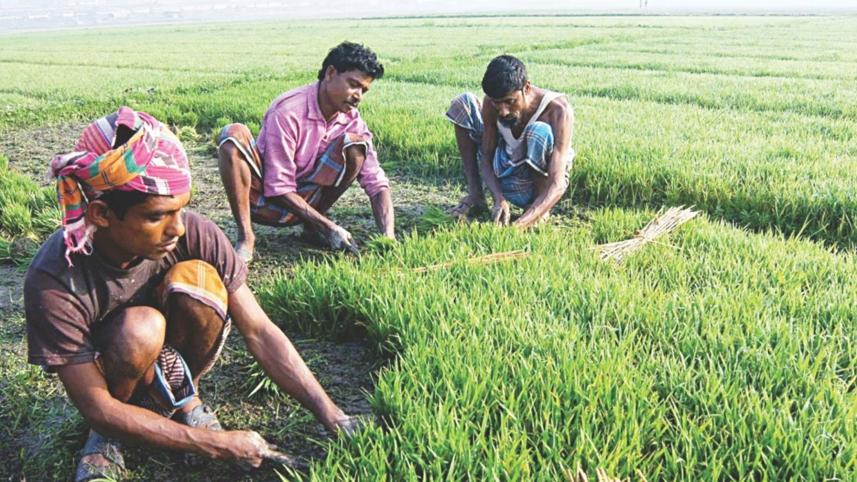Exporting food in the post-pandemic era

One of the biggest challenges faced by governments all over the world during this pandemic has been guaranteeing food security, which essentially means supporting the agriculture sector and also ensuring a steady supply of food through imports. For Bangladesh, while food security is a continuous concern, there is a need to explore the opportunities for export of food in the near future, which can be a major source of revenue. We therefore need to develop an agricultural policy that will ensure farmers get fair prices for their crops and promote the growth of diversified crops.
At a recent webinar, media personality and agriculture development activist Shykh Seraj said that while in the coming days the country will face a major challenge to ensure food and nutrition security during the pandemic, in the post-pandemic period, Bangladesh can take advantage of the opportunity to export food as the whole world will be preoccupied with ensuring food supply.
This is not an unrealistic ambition given the scope of agriculture that remains unexplored. One of the biggest hurdles farmers face, apart from floods and rains that destroy their crops, is getting fair prices. Middlemen dominate the agriculture market and take the lion's share of the revenue from selling crops. This has led to farmers giving up their vocation and landowners selling off their land at low prices, which are then used for non-farming purposes. The result is a reduction in agricultural land and hence a decrease in the amount of food grown. This is not the scenario Bangladesh can afford as it compromises local food security and takes away the opportunities to export.
The primary challenge for the government, therefore, is to remove the middlemen from the market so that farmers can directly sell their crops and get fair prices for their hard earned crops.
As Shykh Seraj has pointed out on many occasions, investment in agro-industries have huge returns. There has to be more emphasis in high value agricultural products such as fruit, vegetables and dairy products, all of which have a high demand abroad, especially among expatriate Bangladeshis. Last year, Bangladesh earned USD 909 million by exporting processed items like vegetables, betel leaf, tea, dry food, tobacco, fruit and foliage. This can be scaled up by increasing diverse food crops while maintaining compliance protocols, promoting innovative technologies of growing, increasing cold storage facilities, reducing pesticide use and making sure that the farmers are the ones who enjoy maximum profit from selling their products.
With a drastic fall in export revenue from readymade garments, there is an immediate need for diversifying our export portfolio. Commercialising agro-based products could be a golden opportunity to earn revenue and also provide job opportunities for young people and incentivise entrepreneurship in this sector. It is an opportunity we must not miss out on.



 For all latest news, follow The Daily Star's Google News channel.
For all latest news, follow The Daily Star's Google News channel.
Comments